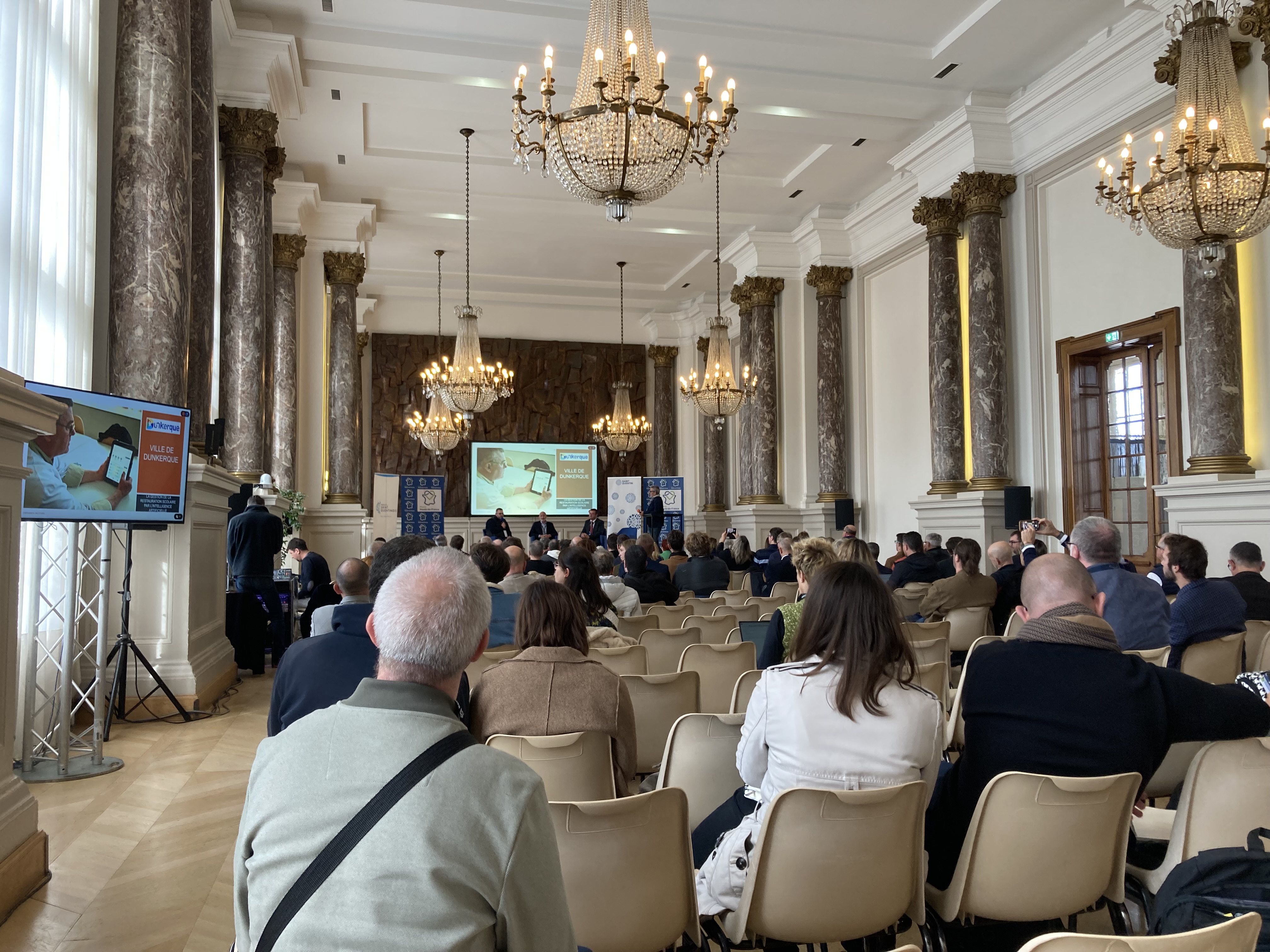Communities in the Hauts-de-France region unite for smarter public services
Preparing for floods, improving air quality in public buildings or reducing food waste in local schools: Cities and communities face a growing number of tasks to improve their residents’ daily lives. The northern French Hauts-de-France region is stepping up to the challenge with digital transformation - and European collaboration is helping to achieve it.
Putting Data and AI at the heart of local and regional action
On 6 November 2025, the Hauts-de-France Regional Council invited local governments to Saint-Quentin to exchange on their needs and strategies at the annual Parlement du Numérique des Territoires, a regional digital parliament assembling local politicians, experts and digital stakeholders. The aim of this year’s edition: Encouraging communities to put data and AI at the heart of their competences, and to recognise their potential across all sectors, be it water, waste, energy or mobility.
Opening the conference, Thomas Dudebout, Vice-President of the Aisne Département Council, explained: “AI can be looked at from multiple perspectives. We choose to see it as an ethical tool that can help improve living and working.” This implies that emerging technologies should respond to real-world needs, or as Florence Bariseau, Vice-President of the Hauts-de-France Regional Council puts it: “We need to put AI in the water, not the other way around.”
This puts cities and communities in the north of France among a growing number of European local and regional governments that recognise digital transformation as a tool for better public services. Cities and regions all over Europe are facing similar constraints and needs: Living-in.EU gives them a space to share their ideas and practices to address the digital divide, limited budgets and data management, and inspire other public authorities across the continent.
Local challenges, citizen-centred digital solutions
Thematic workshops showed how digital technologies can help respond to challenges that are specific to the culture and environment of Hauts-de-France. The coal industry has played a central role in the region for decades and museums like the Mining History Centre in the city of Lewarde are keen to keep the stories alive: The AI-based virtual experience tool “Meet a former miner” responds to this ambition by bringing the coal era closer to visitors.
Floods are another issue in the region, with rivers such as the Somme, Aisne and Oise regularly putting cities in the Départements of the same name to the test. Particularly experienced in this regard, the community of Long is collaborating with Somme Numérique, a public service organisation supporting municipalities in the Département with purchasing and exploiting digital technologies: Now, connected sensors measuring water levels in Long allow the city to better anticipate floods and warn its residents.
Somme Numérique, together with the Hauts-de-France region, is part of a multi-level network of initiatives that help local governments exploit the potential of digital transformation. The Oise-Aisne interdepartmental association, for example, is partnering with the national weather service Météo-France to provide its member cities with an online flood forecasting platform: By modelling different propagation scenarios, municipalities can see which streets and buildings would be affected by flooded areas.
Collaboration drives innovation
Working as a community, not in isolation: This philosophy ties in with broader initiatives at EU level to create an ecosystem where cities and regions can harness AI and data for citizen-centred digital services. The goal: Allowing for interoperable data exchange with EU Data Space for Smart Cities and Communities (DS4SSCC), or pooling resources for Digital Twin deployment in the European Digital Infrastructure Consortium for Networked Local Digital Twins (LDT CitiVERSE EDIC).
European and regional support provide cities and communities with the insights and resources to acquire the digital tools that answer citizens’ needs, while ensuring that every local authority remains in control over its data. Efforts to implement this vision on the ground don’t remain unrecognised: At Parlement du Numérique, the communities of Dunkerque, Desvres-Samer and Saint-Quentin received awards from the region for their innovative smart city approaches.








